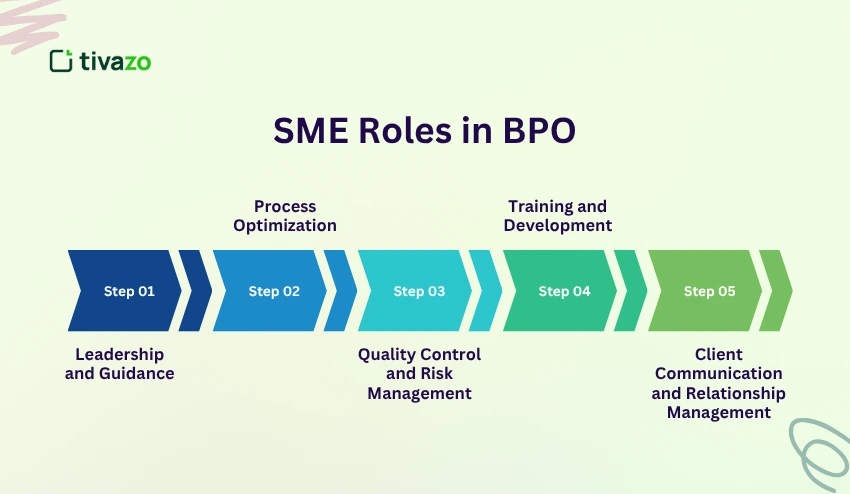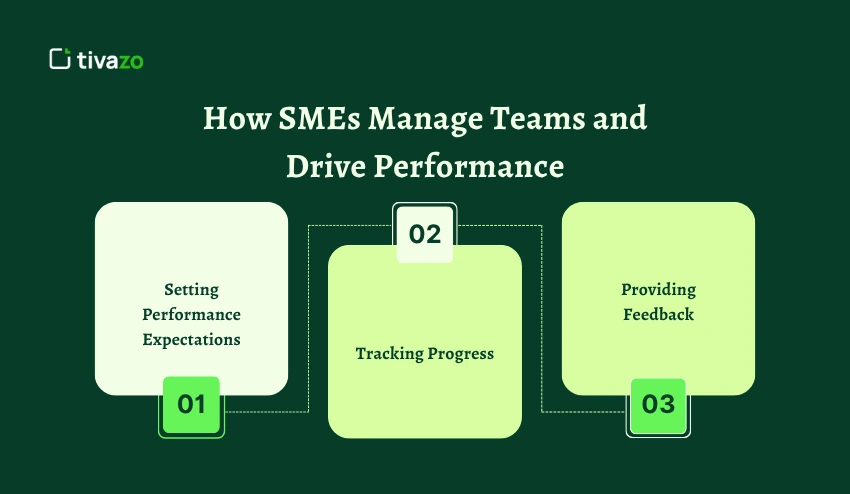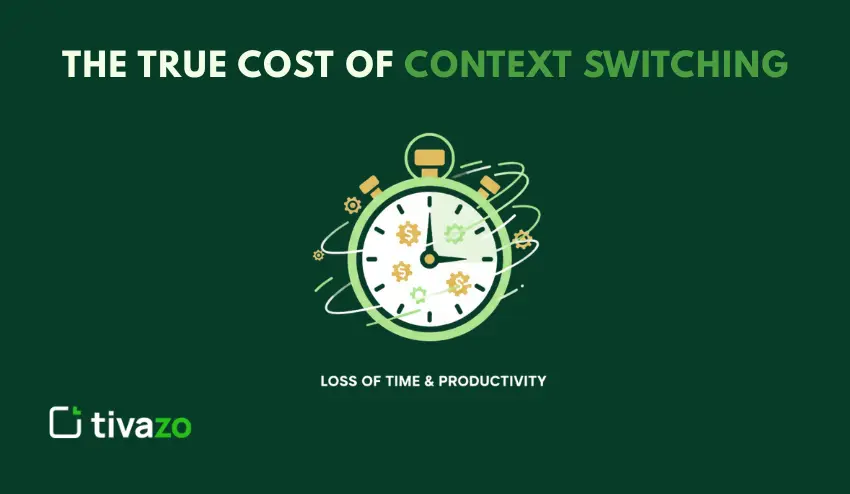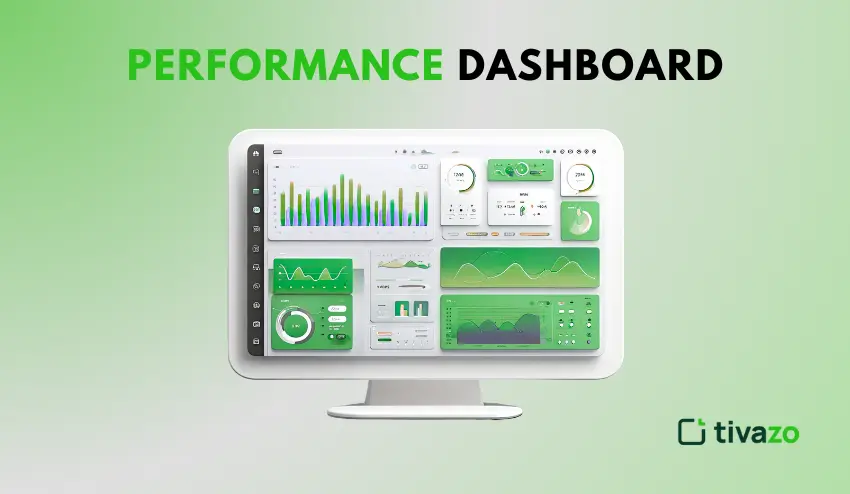If you have ever worked in a BPO (Business Process Outsourcing) or call center environment, you know how important it is to have everything running smoothly. From managing multiple volumes of customer interactions effectively, while assuring the quality of service at the same time, many activities are taking place as you are working. This is where the SME (Subject Matter Expert) plays a critical role.
SME roles in BPO are the foundation of a business, as they can significantly help accelerate staff productivity and business processes.
In this blog, I am hoping to define the full form of SME in BPO or call center, explore how SMEs can help improve productivity, and how products like Tivazo can help elevate SMES’ productivity.
Key Highlights:
- Full Form of SME in BPO
- SME Roles in BPO: 5 Key Roles
- Time Management is Crucial for SMEs in BPO
- Overcoming Common Time Management Challenges for SMEs in BPO
What is the Full Form of SME in BPO?

In a BPO or call center, the abbreviation SME refers to Subject Matter Expert. SME roles in a BPO environment can be considered either an individual with in-depth knowledge on a specific process, task, or subject matter, or they will be the source of knowledge on the respective area of expertise.
Subject Matter Experts (SME) play a crucial role in ensuring that the teams they work with are informed, productive, and able to provide clients with excellent customer service. Whether it is customer service, data processing, or IT support, SMEs make sure that team members know their jobs from top to bottom and are empowered to leverage their skills to create a strong organizational culture of excellence.
SME Roles in BPO: 5 Key Roles You Should Know
SME Roles in BPO are:

1. Effective Leadership and Guidance
Effective Leadership and direction are one of the general roles of SMEs in BPO. SMEs will lead the team in the right direction, create expectations, and provide mentoring to junior staff members. SMEs can provide insight into industry best practices and ensure that all team members are alignment with the goals and objectives of the company.
For instance, an SME in a customer service BPO may mentor new agents in troubleshooting challenging customer calls or more complicated issues.
2. Process Optimization
SMEs are also process optimization experts. They review workflows, identify what are bottlenecks, and implement measures to improve workflow efficiencies. In a BPO, SMEs are always looking for ways to minimize time wasted on unnecessary work and streamline processes.
An example is in a BPO specializing in data entry, SMEs in BPO would identify opportunities to redesign the process to limit human error and eliminate wasted time completing tasks.
3. Quality Control and Risk Management
SMEs perform quality control and risk management. In many BPOs, SMEs complete audits to ensure that the output conforms to WIP and reflects the client’s expectations. They are the liaison when discrepancies are identified, to ensure everything is aligned with the contract.
An example of this is an SME that specializes in quality assurance may proofread data, and provide feedback on what problems were flagged and how to fix them.
4. Training and Development
An important aspect of the role of an SME in BPOs is training and development. SMEs are internal trainers, where their knowledge is transferred to new and existing employees. They will ensure that the team possesses the necessary skills to complete their job while ensuring the team is aware of any changes to processes and/or technologies.
As an example, a technical SME could train new IT support employees, so they understand the latest troubleshooting techniques.
5. Client Communication and Relationship Management
SMEs are the first line of communication between clients and the BPO team. SMEs will also be the first option for the client when they have a concern with the service; SMEs provide updates and feedback to provide the client with suggestions for improvements. The SMEs also help develop and manage the client relationships, which ensure longer business relations and customer satisfaction.
For example, an SME for a financial services BPO could work with the client to develop the reporting processes to ensure the client’s expectations are consistently met.
Why Time Management is Crucial for SMEs in BPO
In a BPO context, good time management is critically important for SMEs in BPO (Subject Matter Experts) because these individuals are working with multiple teams, in a multi-function role as they are involved in overseeing teams, helping develop processes and procedures, providing mentoring, and are the point of escalation for client issues, etc. Good time management impacts the SME’s ability to effectively fulfill these important role responsibilities as they can become overwhelmed without the structure of managing their time, and can miss deadlines.
The wrong effort allocation can make things inefficient for everyone, and we can get less effective, and finally, just burn out. There are important tasks in the job performance of an SME that can be neglected, and that is a detriment to the team’s productivity and the client’s satisfaction if those tasks are not prioritized with a clearly defined schedule.
Tools automate reporting and provide real-time data to SMEs to help them eliminate inefficiencies and have solid and sustainable structures over their overall workload, while supporting the focus on the high-priority tasks during work engagements. Effectively managing time as an SME supports the SME’s productivity, which is a critical success factor for the overall productivity of the BPO team.
Overcoming Common Time Management Challenges for SMEs in BPO
SMEs in BPOs usually perform many of these duties simultaneously, making it difficult for them to manage their time. Some of the everyday challenges are:
- Multitasking: SMEs are expected to juggle several tasks at one time, from managing team productivity, addressing problems, and engaging with clients. Although multitasking may seem like an efficient approach, it often causes mistakes, miscommunication, and missed deadlines. If an SME is reviewing a project, training a team member, and responding to the issues with a client, then the quality of engagement that the SME is able to offer to each task is reduced, which will likely hurt productivity.
- Burnout: The high-stakes environment of the BPO and the taxing duties of an SME will lead to stress and exhaustion. SMEs often work extended hours, work against short deadlines, and manage the challenges associated with the work, all while overseeing the performance of their teams. The constant obligation of the workload without an ample opportunity to rest results in a feeling of burnout. When burned out, the SME’s focus, decision-making, and ability to lead their teams are at a detriment. Over extended periods of time, burnout isn’t likely to just impact the performance quality of the SME; it will also affect the team, and eventually the broader company culture.
- Lack of Visibility: One of the most significant challenges SMEs face is a lack of visibility around how time is spent. Without accurate tracking, it’s impossible to actually know what tasks are taking too much time or where inefficiencies exist. This can result in indecisive prioritization, eg, spending too much time on low-impact tasks at the risk of more important tasks causing significant inefficiencies. Without the right data, it is virtually impossible to refine workflows and recognize areas that need improvement.
By implementing time tracking technology, SMEs can resolve these challenges and better manage their time. Time tracking tools provide SMEs with visibility around how their time is allocated across their work, providing a better framework for making decisions on how they prioritize their work. For example, Tivazo will identify how many hours were spent on which types of tasks, even if they determine it was an allocated amount of administrative time, engaged with a client, or doing some oversight for their team. This level of detail provides SMEs with insights to enhance their day
How SMEs Manage Teams and Drive Performance
SMEs are not only responsible for team performance but also performance in a BPO-like environment. SMEs take into account realistic performance expectations for their teams; set goals, monitor, and follow up with actions that enable the teams’ activity to gain attention and ensure that the performance they create continues to drive profit, while keeping their teams motivated to push themselves to continue their performance.

- Setting Performance Expectations: The SMEs establish performance standards of practice and assign roles and expectations to the team.
- Tracking Progress: The SMEs will track the progress of the workload related to the specific task or goal achievement while ensuring the workload is being done within a specific timeframe, and ensure that doing the tasks correctly is transmitted into the planned work.
- Providing Feedback: A critical point for the SME to evaluate is Continuous Improvement, and to state that Continuous Improvement can only be rationalized by constructive feedback. SMEs should regularly provide feedback for the purposes of continuous performance improvement.
For example, an SME leading a team of Customer Service Representatives in a Call Center Environment, would take the time to review the team’s customer service metrics, stating that the team performance is subpar, who the individuals are from totally different behaviours, and providing an opportunity on how to improve the team whole.
How Technology is Shaping the Role of SMEs in BPO
Technology is rapidly changing the role of SMEs in BPOs. With the use of automation tools and AI-driven analytics, SMEs are able to quit repetitive duties such as scheduling, reporting, or time tracking, and spend their time on activities that are of greater value.
For example, Tivazo provides real-time data about a team’s productivity that allows SMEs to make immediate decisions based on evidence and make updates to a strategy when required. With this approach, SMEs are provided the opportunity to improve processes, drive team performance, and have more input in effective planning.
What will we see change, as the technology continues to mature, is that SMEs will focus on the aspects of their roles that drive growth and efficiency, while the more trivial aspects will continue to be replaced with automated systems.
Conclusion
SMEs add exceptional value to BPOs. They ensure a high-quality performance, help optimize processes, train employees, and manage client relationships. For SMEs in BPO to maximize their value, good time management is vital. Taking advantage of time tracking tools like Tivazo would help SME’s in BPO organize and minimize burnout, allowing them to maximize their productivity.
If you are an SME looking to be more productive and improve operational wins, I would encourage you to use Tivazo today. You can optimize your time, improve the efficiency of your team, and achieve success less by accident within your BPO.




